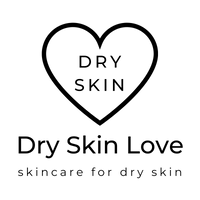Supplemental omega 3 fatty acids from fish oils have been shown to help with itching.
Significant outcomes were reported with doses ranging from 1200 mg/d EPA + DHA to 18 000 mg/d EPA + DHA.
This article will discuss:
- What are omega-3 fatty acids?
- What are sources of omega-3 fatty acids?
- Can omega-3 fatty acids help with itching?
- How much omega-3 fatty acids should you take?
- Summary
- References
What are omega-3 fatty acids?
Omega 3 fatty acids consist of alpha-linolenic acid (ALA), and its two active metabolites, docosahexaenoic acid (DHA) and eicosapentaenoic acid (EPA).
- alpha-linolenic acid (ALA)
- docosahexaenoic acid (DHA)
- eicosapentaenoic acid (EPA)
The body has a minimal ability to convert ALA into DHA and EPA.

Sources of omega-3 fatty acids
Alpha-linolenic acid (ALA) is found in green leafy vegetables, flaxseed, walnuts, soybean, and canola oils.
Docosahexaenoic acid (DHA) and eicosapentaenoic acid (EPA) are found in fish oils, marine algae and phytoplankton that naturally produce them.
Fish oil supplements and omega-3 fatty acid supplements contain oil derived from the tissues of oily fish rich in omega-3 fatty acids, such as salmon, mackerel, sardine, and anchovy.
Fish oil supplements contain a combination of eicosapentaenoic acid (EPA) and docosahexaenoic acid (DHA)—the two main types of omega-3 fatty acids that provide health benefits.

Can omega 3 fatty acids help with itching?
Supplemental omega 3 fatty acids have been shown to help with itching in patients with atopic dermatitis (eczema), hemodialysis and end-stage renal disease.
In 3 clinical trials, patients with atopic dermatitis took daily omega 3 fatty acid doses ranging from 5000 to 8200 mg and found improvement in disease symptoms including itching (Søyland et al, 1994; Koch et al, 2008; Mayser et al, 2002).
In a clinical trial of 47 hemodialysis patients who had chronic itching, there was a significant improvement in pruritus and xerosis at 8 weeks of treatment with 6000 mg/d omega 3 fatty acid (Peck et al, 1996).
Dry skin is an extremely common symptom found in end-stage renal disease patients and has been suggested to be a contributor to pruritis (Shirazian et al, 2017).
Patients with chronic kidney disease consumed 1000 mg fish oil once daily for 3 months found significantly improved skin hydration on both the face and arms, as well as disease-related symptoms of pruritus (Lin et al, 2022).
These results suggest a potential promising therapeutic of omega-3 supplementation for improving skin conditions and consequent pruritus symptoms.

How much omega-3 fatty acids should you take?
Currently, no study exists recommending the optimal therapeutic dosing of omega 3 fatty acid supplementation for improved skin health. However, significant outcomes were reported with doses ranging from 1200 mg/d EPA + DHA to 18 000 mg/d EPA + DHA (Thomsen et al, 2020).
Given its high safety profile, low cost, and ease of supplementation, omega 3 fatty acids and fish oils are a reasonable supplement that may benefit patients wishing to improve inflammatory skin conditions through diet (Thomsen et al, 2020).

Summary
Fish oil supplements and omega-3 fatty acid supplements contain oil derived from the tissues of oily fish rich in omega-3 fatty acids, such as salmon, mackerel, sardine, and anchovy.
Supplemental omega 3 fatty acids from fish oils have been shown to help with itching.
Significant outcomes were reported with doses ranging from 1200 mg/d EPA + DHA to 18 000 mg/d EPA + DHA.
Fish oil supplements have a high safety profile.
Talk to your doctor before taking high dose fish oil supplements for long term.
Do you want healthy skin?
Sign up for Dry Skin Love Newsletter below

References
Huang TH, Wang PW, Yang SC, Chou WL, Fang JY. Cosmetic and Therapeutic Applications of Fish Oil's Fatty Acids on the Skin. Mar Drugs. 2018 Jul 30;16(8):256.
Lin YL, Wang CL, Liu KL, Yeh CN, Chiang TI. Omega-3 Fatty Acids Improve Chronic Kidney Disease-Associated Pruritus and Inflammation. Medicina (Kaunas). 2022 Jun 13;58(6):796.
Thomsen BJ, Chow EY, Sapijaszko MJ. The Potential Uses of Omega-3 Fatty Acids in Dermatology: A Review. J Cutan Med Surg. 2020 Sep/Oct;24(5):481-494.
Koch C, Dölle S, Metzger M, et al. Docosahexaenoic acid (DHA) supplementation in atopic eczema: a randomized, double-blind, controlled trial. Br J Dermatol. 2008;158(4):786-792.
Lin YL, Wang CL, Liu KL, Yeh CN, Chiang TI. Omega-3 Fatty Acids Improve Chronic Kidney Disease-Associated Pruritus and Inflammation. Medicina (Kaunas). 2022 Jun 13;58(6):796.
Mayser P, Mayer K, Mahloudjian M, et al. A double-blind, randomized, placebo-controlled trial of n-3 versus n-6 fatty acid-based lipid infusion in atopic dermatitis. JPEN J Parenter Enteral Nutr. 2002;26(3):151-158.
Peck LW, Monsen ER, Ahmad S. Effect of three sources of long-chain fatty acids on the plasma fatty acid profile, plasma prostaglandin E2 concentrations, and pruritus symptoms in hemodialysis patients. Am J Clin Nutr. 1996;64(2):210-214.
Shirazian S., Aina O., Park Y., Chowdhury N., Leger K., Hou L., Miyawaki N., Mathur V.S. Chronic kidney disease-associated pruritus: Impact on quality of life and current management challenges. Int. J. Nephrol. Renovasc. Dis. 2017;10:11–26.
Søyland E, Funk J, Rajka G, et al. Dietary supplementation with very long-chain n-3 fatty acids in patients with atopic dermatitis. A double-blind, multicentre study. Br J Dermatol. 1994;130(6):757-764.
Thomsen BJ, Chow EY, Sapijaszko MJ. The Potential Uses of Omega-3 Fatty Acids in Dermatology: A Review. J Cutan Med Surg. 2020 Sep/Oct;24(5):481-494.
Author Information

Dr. Natasha Ryz is a scientist, skin care expert and an entrepreneur. She is the founder of Dry Skin Love Skincare, and she creates skincare products for beauty, dry skin and pain relief.
Dr. Ryz has a PhD in Experimental Medicine from the University of British Columbia in Vancouver, and she is a Vanier scholar. She also holds a Master of Science degree and a Bachelor of Science degree from the University of Manitoba in Winnipeg.
Natasha is the former Chief Science Officer of Zenabis Global, and she oversaw cannabis extraction, analytics, and product development. Her team brought 20 products to market including oils, sprays, vapes and softgels.
Why I Started A Skincare Company


